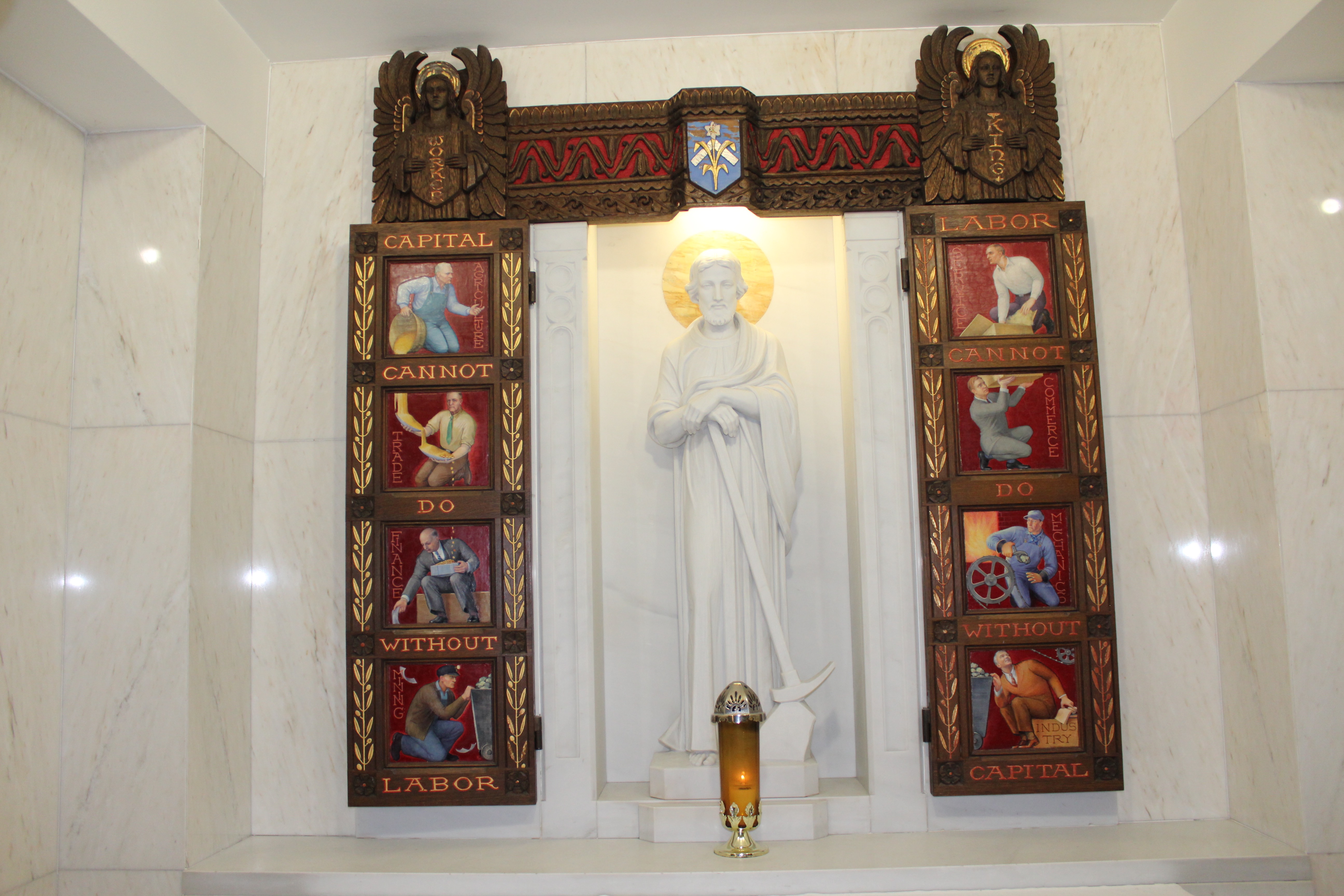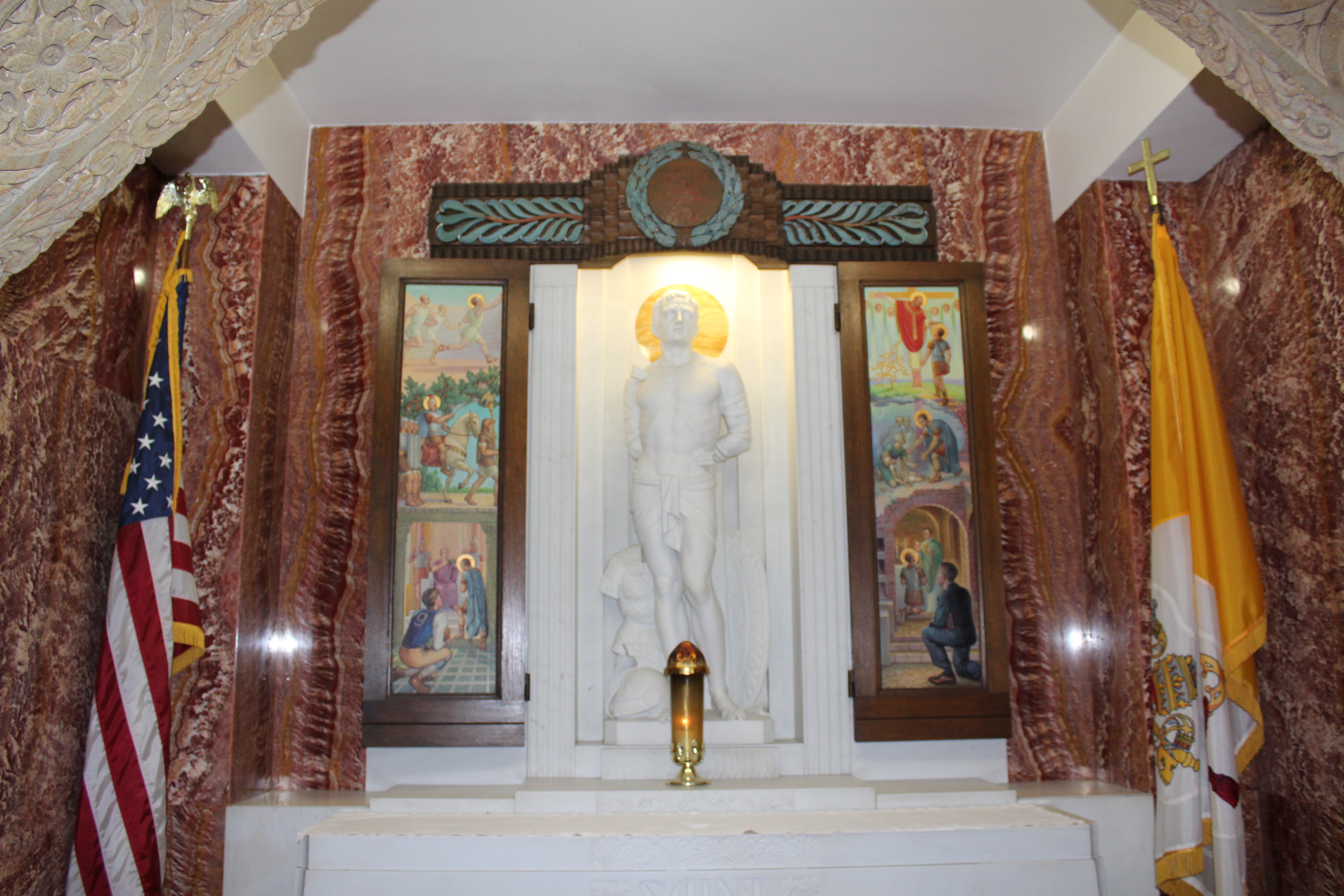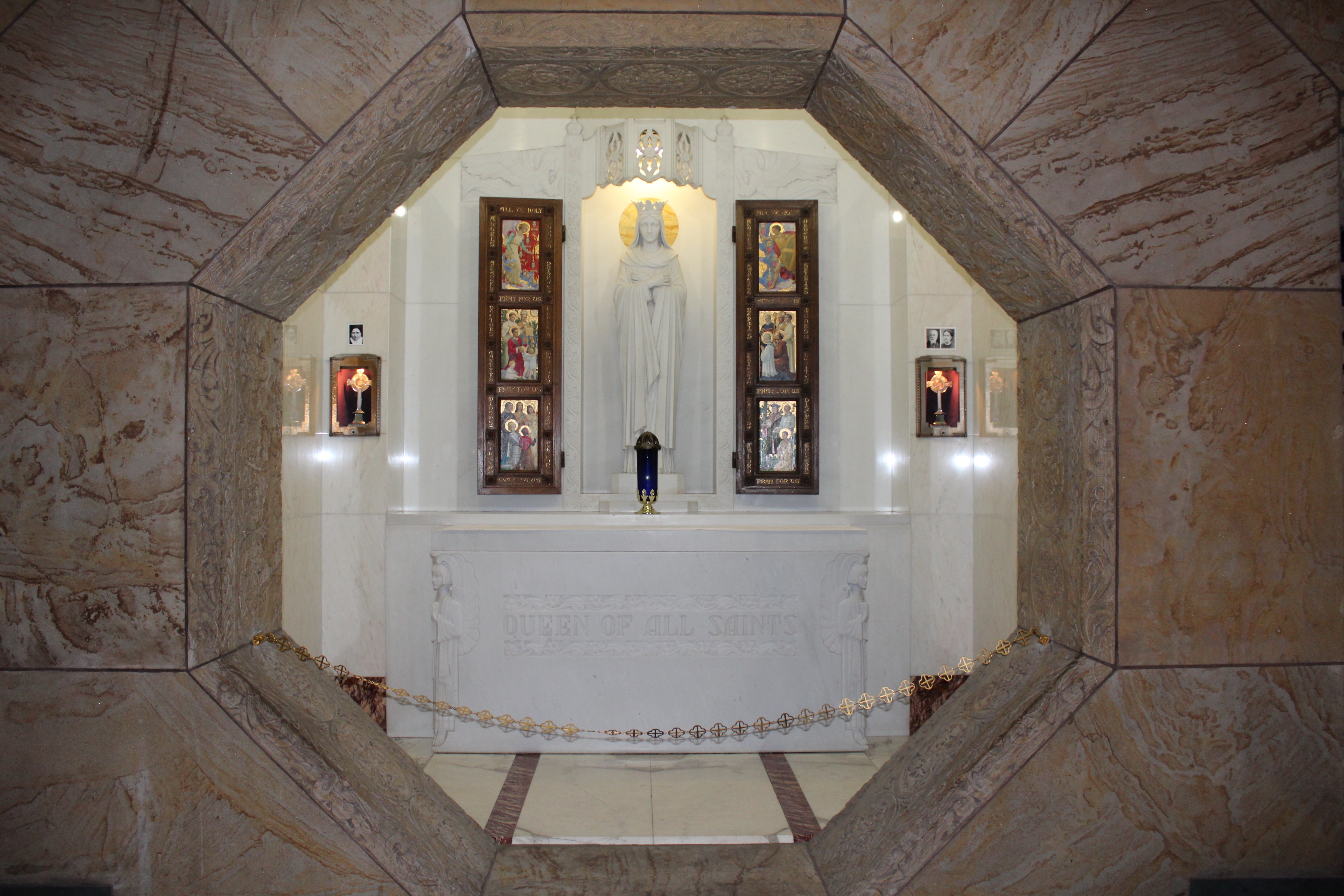Father Coughlin: Fear is the Path to the Dark Side
Gallery
Jedi Grand Master Yoda said, “Fear is the path to the dark side. Fear leads to anger. Anger leads to hate. Hate leads to suffering.” While Yoda may not be real, the phenomenon he speaks of most definitely is. Father Charles Edward Coughlin, Catholic priest and 1930s radio sensation, capitalized on the power of fear, using it to enrage the American people and fuel his career.
Charles Coughlin was born in Hamilton, Ontario in 1891, was ordained a priest in 1916, and in 1923 moved across the border to Michigan. Father Coughlin was a charming man, described by many as being “silver tongued” and “golden voiced;” he made a name for himself by his powerful speeches. Father Coughlin’s radio show, “The Golden Hour of the Shrine of the Little Flower,” ran from 1926 to 1942 and reached tens of millions worldwide. From his church in Royal Oak, Michigan, Father Coughlin used his charismatic radio broadcast to capitalize on a frightened and angry nation. His anti-Semitism and ethnocentrism appealed to many Americans, who then rallied around his populist ideas. The Great Depression of the 1930s had devastated much of America, leaving millions of angry men and women looking for someone to blame. Coughlin understood this, saying in a radio broadcast in 1937, “Somebody must be blamed, of course,” and like Adolf Hitler and the Nazi regime, directed that anger and frustration at the Jews. He blamed Jewish bankers for the Russian Revolution, and in 1938 created an anti-Semitic newspaper called Social Justice. During one of his speeches at the Bronx he gave a Nazi salute and shouted, “When we get through with the Jews in America, they'll think the treatment they received in Germany was nothing." Father Charles Coughlin protested the U.S. involvement in World War Two asking, "Must the entire world go to war for 600,000 Jews in Germany who are neither American, nor French, nor English citizens, but citizens of Germany?" These statements made him a hero in Nazi Germany.
Father Coughlin didn’t just target the Jews, however. He also denigrated other minority groups, such as immigrants and refugees and capitalized on the growing fear of communism in the nation. During the Great Depression many Americans were out of work: the unemployment rate reached 24.9 percent in 1933. Along with the Jews, Coughlin blamed the immigrants, both legal and illegal, for taking “native American’s jobs.” Coughlin’s claims, however, had no facts to back them up. By the end of the 1940s, immigrants only made up less than one-twentieth of the U.S. population according to the U.S. Census, which wouldn’t even account for a fraction of the unemployment rate. He opposed both communism and capitalism, saying “I have dedicated my life to fight against the heinous rottenness of modern capitalism because it robs the laborer of this world's goods. But blow for blow I shall strike against communism, because it robs us of the next world's happiness.” Father Coughlin stated that communists were a threat to the family unit because they purposefully made divorce easier, and that their un-Christian lifestyle was quickly making its way to the states. He referred to this concept as the "Bolshevism of America."
Playing to the fears of the American people, Coughlin’s radio broadcasts had attracted upwards of 30 million listeners at its peak. In 1930, Coughlin asked his listeners for donations to defray the cost of building The Shrine of The Little Flower. For the next decade, in the heart of the depression, donations came flooding in from across the country. The Shrine of the Little Flower was built in 1936 and remains the third largest building in Royal Oak.
Facing Woodward Avenue, standing twenty eight feet tall, is a limestone statue of Jesus’ crucifixion, which was built in response to the anti-Catholic Ku Klux Klan, as a “cross they could not burn.” The inside of the Basilica is immaculate, with tapestries draped from the ceiling and hand- painted murals on the wall as well as displays featuring Charles Coughlin in the lobby. At the center of the octagonal church is a two- ton marble altar brought to the U.S. from Italy. The Shrine of the Little Flower seats 3,000 and in 2014 was granted the title of minor Basilica by Pope Francis. This title is “given to churches around the world to denote a particular importance in liturgical and pastoral life and a closer relationship with the pope.”
As Coughlin became more influential, he became more extreme and began receiving criticism from both the Catholic Church and the U.S. government. By the late 1930s he began to lose popularity, mostly due to his attacks on President Franklin D. Roosevelt. John Ryan, a Catholic priest, denounced Coughlin for his "ugly, cowardly and flagrant" attacks on FDR in 1936.
In 1939, the National Association of Broadcasters forged new rules and placed increasingly rigid limitations on the sale of radio time to controversial spokesmen, forcing Father Coughlin off the air. Coughlin was then limited to his tabloid newspaper, ”Social Justice.” At that point, the Roosevelt administration attacked his newspaper removing the mailing rights of Father Coughlin stating that he could print whatever he wanted, but did not have the right to use the United States Post Office to send his publications. The loss of his radio show and his newspaper combined with the U.S. involvement in World War Two and his support of the Germans caused his following to dwindle.
Father Charles Coughlin used his power as a priest and his access to mass media to gain influence in a frightened nation. He was supported by the masses and is still held in high regard at the Basilica today.
Although Coughlin eventually faded into the background and is now long dead, the xenophobia that made him popular still thrives. Powerful men still use the media as a platform to incite fear and hatred at the expense of many. While the targets may change as well as the individuals who profit from it, the dark side remains the same. In the end the words of Grand Master Yoda ring true once again, "In a dark place we find ourselves, and a little more knowledge lights our way."



